Dealing with toxic families over Christmas

Christmas can bring out the tensions and difficulties in most families. File photo: iStock
In today's Spotlight feature:
- - In 2013, Fiona Doyle's father Patrick O'Brien was sentenced to 12 years in prison for her rape and sexual assault from 1973 to 1982. In 2019, he walked free. And this Christmas, she will send him a care pack to his nursing home.
- - For older people in Ireland, both elder abuse, neglect and exclusion, are issues that they face, and especially at Christmas.
- - Sarah Sproule works in the area of tricky family conversations, specifically between parents and children when it comes to the body, sex, and relationships.
- - Leaving Ireland for the festive period is one way people deal with family or personal issues.
- - Hazel Larkin, a mother of two who works as a trauma specialist, has no contact with the family she grew up in - by choice - after spending many years trying to make the relationships work.
Anne Maniar Dunne is a counsellor working in the area of family conflict. Most of her clients are adults who were victims of narcissistic or emotional abuse growing up.
"I think family conflict is a huge issue in our society and we carry it with us our whole lives, and it doesn't have to be high-level abuse. It's often low-level toxicity that runs in families," says Anne.
For her clients, she says Christmas is an especially difficult time.
"People you may not have seen for months on end are all suddenly in a room together. We're brainwashed into believing this is what it should be, this perfect happy family and the guilt that you don't have that is huge as is the pressure we put on ourselves to actually have it," says Anne.
While there are tensions and difficulties in most families, what Anne works with is far more complex than that.
"A true narcissist is very difficult, it's a really difficult relationship. Narcissists don't see people as individuals, they see them as accessories to them, they see their children as extensions of them, if they fail an exam they've let them down, or if they do great, it enhances their image to the world," says the counsellor.
"In dysfunctional families there are various roles within a family: the fixer; the responsible one; the golden child and the scapegoat, who is often a female. She's the one who's responsible for everything and that comes with huge anxiety.
"I once had a client whose relatives had addiction issues and they were even blamed for the addictions," adds Anne.
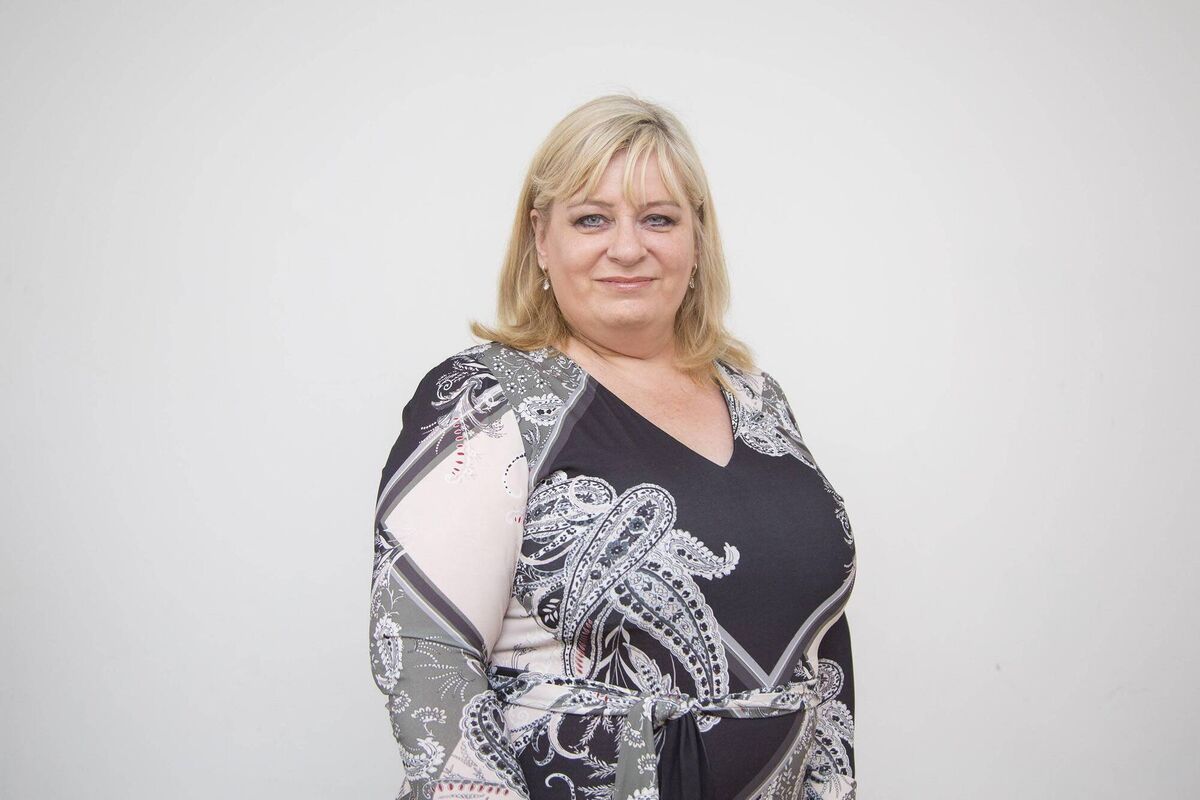
Anne explains that the main markers of dealing with a person who has narcissistic tendencies include being blamed for things that you bear no responsibility for, having no right to have any feelings, constantly having to manage other people's feelings who you are made to feel responsible for and there being absolutely no repair on the part of your relative.
This lack of repair, where someone who has said or done something hurtful fails to make amends in any way shape or form, is a classic issue. This inability to make a repair, or apologise in some way, is often how you can gain clarity about the type of person involved.
"The narcissist doesn't even try to apologise, you don't have the same right to feelings that they do, they thrive on playing the victim," says Anne, who explains that this is where we often see the silent treatment tool coming in, and a stalemate as a result.
"The persecutor wants the victim to come back and say: 'I'm sorry'. It's a psychological tool, they want to get the other person to break the silence.
"People experience it as a constant psychological battle they've had their whole life, and other people become very good at that sort of manipulation," explains the counsellor.
So when it comes to family relationships of this kind the issue is more about negotiating rather than repairing and improving communications. Often the victim has spent their life trying to appease or manage the feelings of a parent or a sibling and no strategy ever seems to work.
"There is very little repair with a narcissistic, it's more negotiating the relationship for yourself. It's about accepting the limits of that relationship and that person, grieving that and protecting yourself," says Anne.
And when it comes to protection from ongoing abuse, going low contact or no contact with the family member seems like the viable option on paper, only it isn't so easy, says the counsellor.
Of all the clients she has worked with, only one has ever gone no contact and the rest find the guilt of reduced contact very difficult.
"They don't want to be alone. We aren't built that way, we're pack animals, and your first pack is your family, it's a very difficult thing to go no contact," says Anne.
"The guilt thing is huge, it's not in us to go low contact, we're too kind," she adds.
So when it comes to family get-togethers, especially around Christmas, Anne works out strategies with her clients about how they can manage the day, from preparing stock phrases to say to organising their time. She also works on psychoeducation which helps clients "not take to heart" what someone might have said.
She emphasises that it is important to take "baby steps" to regain boundaries.
Anne's website is newjourneycounselling.ie and she does in-person and online sessions
- Stand Alone is an English charity that supports people who are estranged. They run online workshops and groups. See: www.standalone.org.uk
- One in Four is an Irish charity supporting adult survivors of childhood sexual abuse. See: oneinfour.ie or call 01 662 4070
- Childline supports people aged 18 and younger. See: childline.ie or call 1800 666 666
- Pieta House provides a free, therapeutic approach to people who are in suicidal distress and those who engage in self-harm See: pieta.ie or call 1800 247 247
In 2013, Fiona Doyle's father Patrick O'Brien was sentenced to 12 years in prison for her rape and sexual assault from 1973 to 1982. In 2019, he walked free. And this Christmas, she will send him a care pack to his nursing home.
"It's not to take care of him, it's to take care of me.
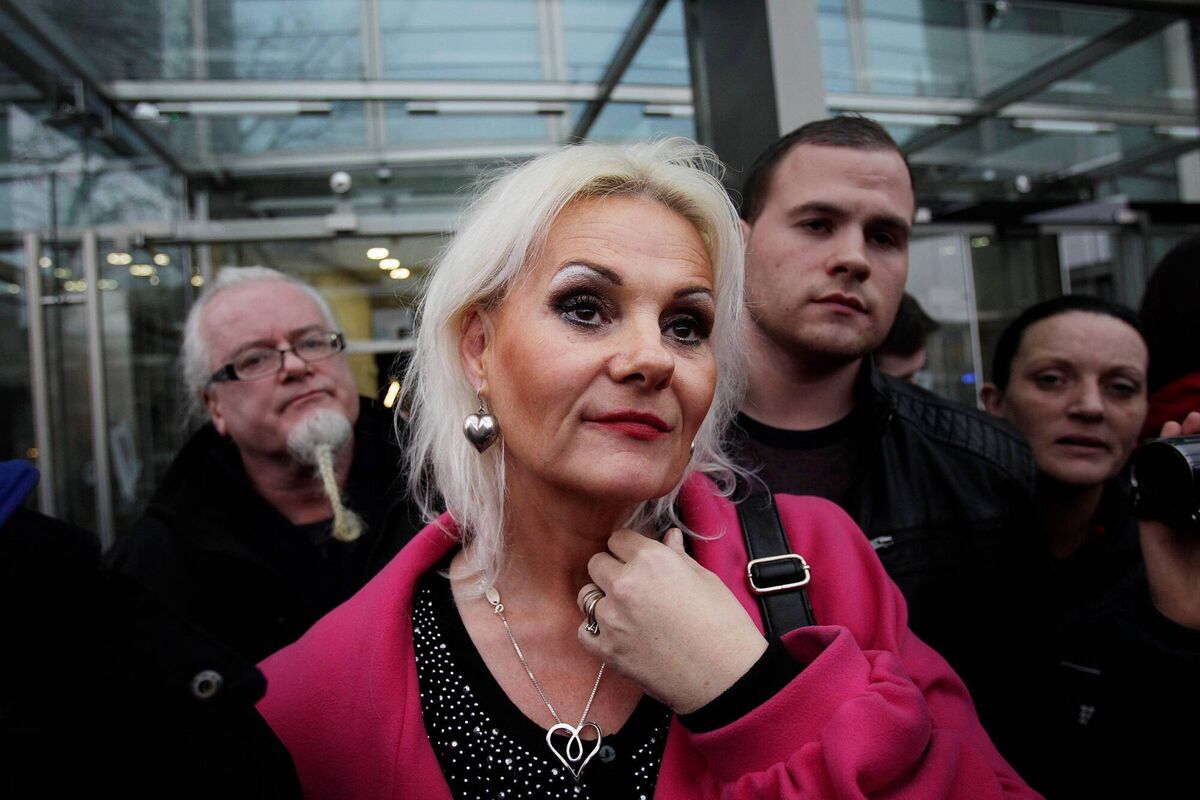
"I don't want to be nasty and bitter, if I am to send a gift to an old person, why not send it to him? I am still a nice person," says Fiona.
Her mother, now deceased, knew of the ongoing abuse. The second eldest of five children, Fiona today, only has contact with one of her siblings.
Despite having her own children now, and grandchildren, she finds Christmas an inordinately difficult time because of the level of estrangement her father's abuse caused within her family.
From ads on TV of perfect families to people posting ‘memory plaques’ for loved ones on Facebook, Christmas is full of triggers for what she never had.
"At the back of it all there is still a sadness that I have no one," explains Fiona.
"Life is not normal for me and it will never be, people don't see why I have an issue with Christmas, but my first suicide attempt was Christmas. People don't see all these triggers, like I'm constantly seeing plaques put up on Facebook, or even seeing a Kerrygold ad or a packet of fig rolls.

"Everybody has things that make them think of their parents, and everybody has things that make them think of their childhood, and everyone has ups and downs in their family, especially when it comes to a family celebration.
"My son was to get married during Covid and I joked: 'Well there will only be two pews needed on my side'," says Fiona.
While Fiona has received some form of justice through her father's conviction and prison sentence, as well as confronting him to his face, and some catharsis through writing her book and speaking publicly, none of that takes away the sadness she feels for wishing things had been different and that she had come from a loving family.
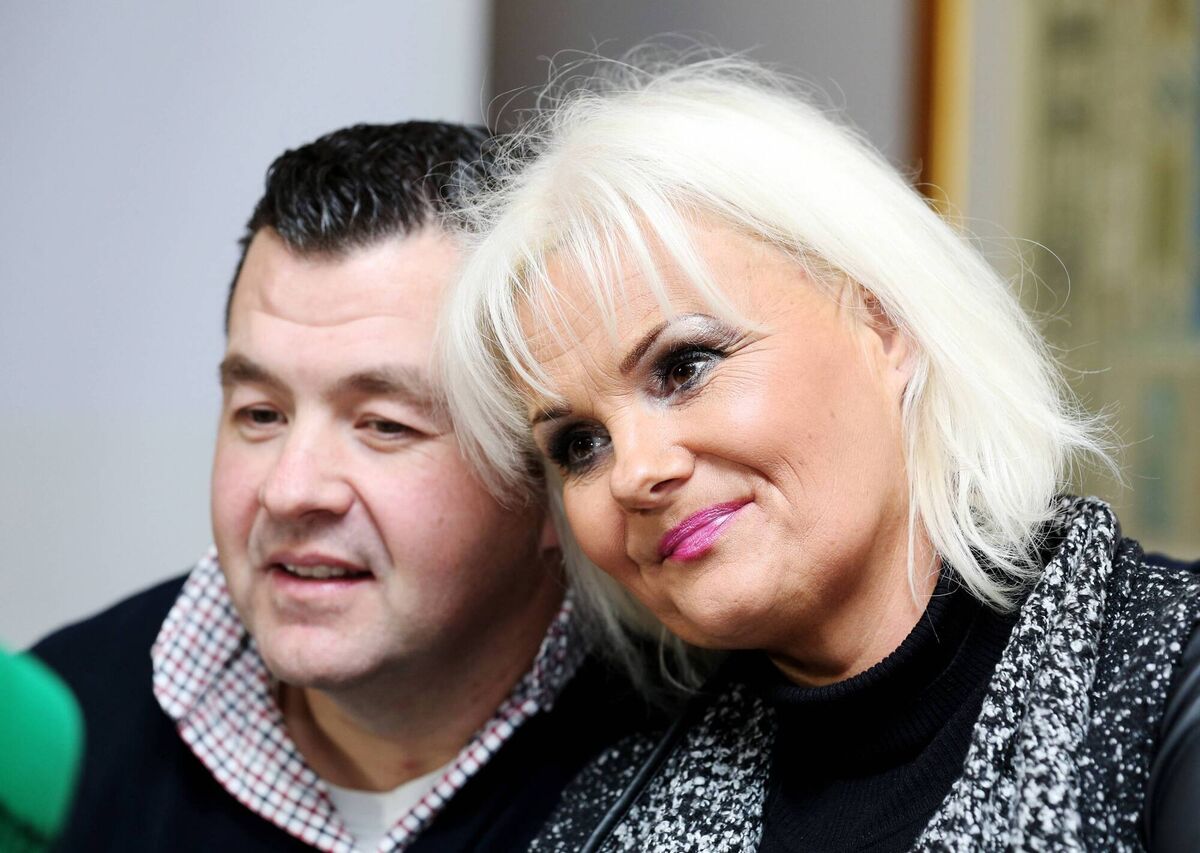
"I feel so lost and alone when I hear people say they can't wait to have their mother for Christmas.
"We were all brought into this world by a mother and a father," says Fiona, who admits that she does not beat herself up for wanting parental love.
"Me wanting a normal mum and dad or yearning for a normal family is natural, I'm not going to make myself feel bad for it," she says.
Nowadays, she has her own Christmas routine and plans, visiting one son for breakfast and another for dinner, as well as preparing care packs for her own grandchildren. But again, this routine with the family she has made, does not fill the void of the one she came from.
"We have our own little routine going, I'm now the nanny, I do get an immense amount of enjoyment out of that but I wish I could enjoy that without the sadness of my history and my life. It's ongoing, there is a tinge of sadness that this is never going to change for me," says Fiona.
But there is more than sadness at play for her, there is the constant feeling that she broke up her family by speaking out, as opposed to it being damaged by her father's criminal actions. This incorrectly apportioned blame is something that other survivors talk to her about also.
"It can feel like: 'I'm the troublemaker, I'm the one who broke up the family by revealing the secret', and sometimes I wonder what life would have been like if I hadn't done it. But what I always come back to is that life is better, my children are proud of me and I raised my children to stand up for their truth," she says.
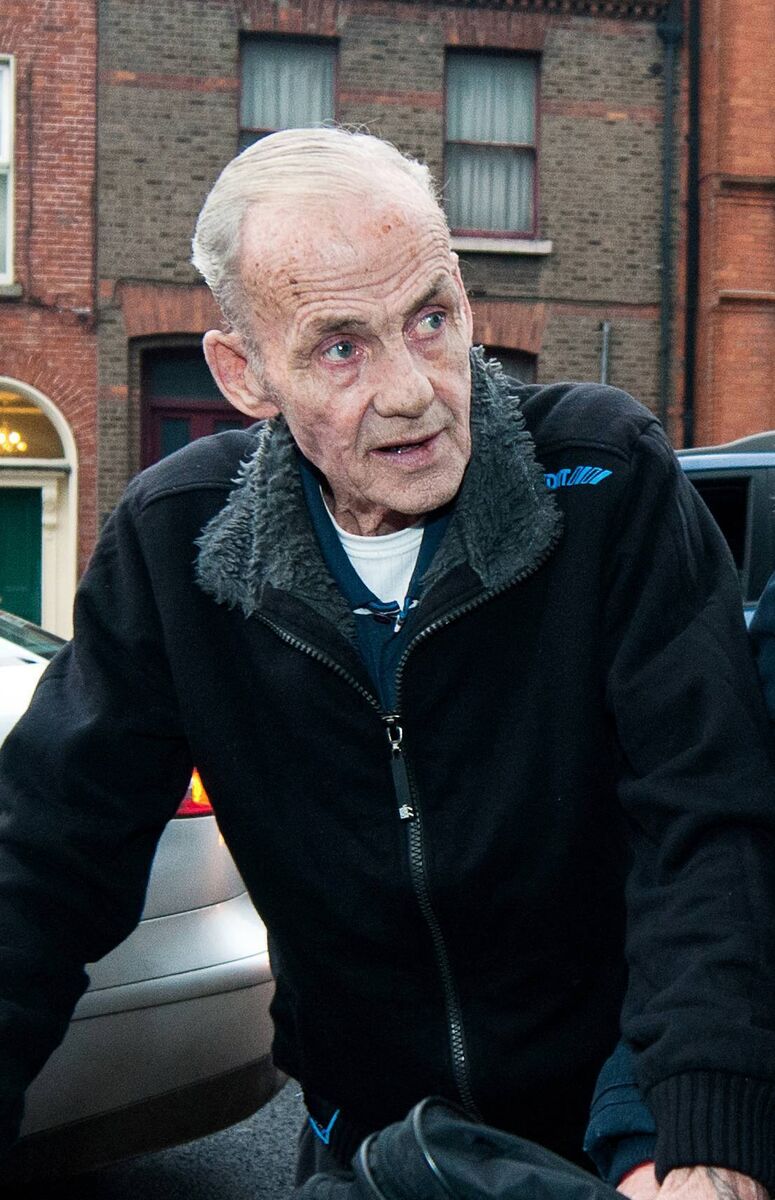
"I tell others not to turn on themselves, you are not at fault here, stop carrying everyone else's shame and guilt on your shoulders. Sometimes family members don't want things exposed that they knew were going on, the message is: 'Don't upset the family dynamics'," adds Fiona.
While her own story is on public record, Fiona says her story is far from unique, and she is constantly contacted by people either through social media or else just walking up to her on the street.
"The amount of people who say: 'I feel you're speaking for me', and it's everywhere I go, out in public, walking the streets, they're contacting me on Facebook, hundreds of people and men too," says Fiona.
"I just need them to know that life is better because I told the truth," she adds.
Fiona has uploaded several videos to YouTube, under her name Fiona Doyle, including ones about dealing with Christmas and family alienation.
For older people in Ireland, both elder abuse, neglect and exclusion, are issues that they face, and especially at Christmas.
"We deal with a huge range of Christmas-related issues on SeniorLine, some positive, but many quite heart-breaking’, says Anne Dempsey, Communications Manager of SeniorLine, Ireland’s national peer-to-peer telephone service for older people.
"Some callers have not been invited to families for Christmas, they don’t know where they stand and are afraid to ask. It could be that families are being cautious around the new virus, but we would encourage people to have the Christmas conversation with parents and grandparents. Some callers don’t feel wanted, which is very difficult and hurtful," she adds.
Elder abuse is a small but constant issue on the helpline, and something that has increased during the pandemic.
"We have callers being bullied to sign over a family farm, we have callers living with adult children who have a drinking problem which gets worse over Christmas," says Anne.
A major issue is negotiating the situation as the older person does not want the relationship to end, just the abuse "We discuss what options the caller has, what can they do, or who can they tell while remaining safe? We often find they have kept it secret in the family to protect the abuser, but often these situations won’t be solved unless the person feels they can talk about it, and usually there are options and services the caller hasn’t thought about or doesn’t know of," says Anne.
SeniorLine, Ireland’s peer to peer service for older people is open every day of the year 10am-10pm Freephone 1800 80 45 91
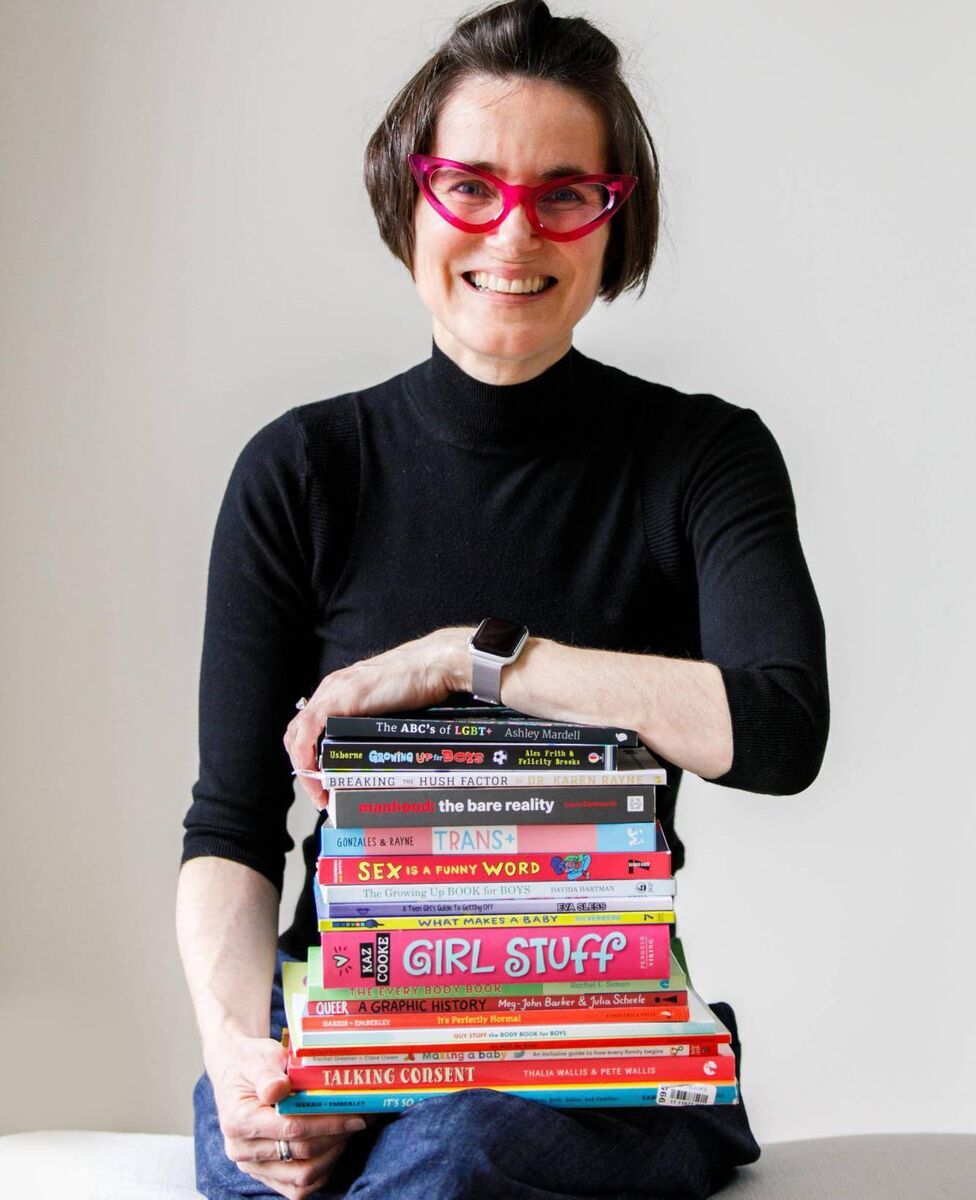
Sarah is on Instagram @iamsarahsproule
Leaving Ireland for the festive period is one way people deal with family or personal issues.
Managing director of Travel Counsellors Cathy Burke told the Irish Examiner that her company considers Christmas time peak season.
"People go away at Christmas because they've had loss and Christmas reminds them of what they've lost, or maybe because of family fallouts and some people take their entire families.
"They're never going to tell you unless you get into that conversation, and most Irish people won't say, but people you meet away might like young couples who can't have kids and an aunty or uncle might accidentally bring it up at Christmas, and they just don't want to be around that pressure," says Cathy.
While there is lots of travel at Christmas with people coming home or going abroad to relatives, Cathy is specifically speaking about holidays people take, where visiting is not a reason for travel.
Popular destinations for Irish people this year are the Canary Islands, the Caribbean, ski holidays and the Maldives. Pre-pandemic Thailand and South Africa were very popular.
In the winter, the busiest travel time is the two days after Christmas Day.
"Christmas is a really, really busy time, we consider it the high season," says Cathy, but it is also seen as expensive, however, she says it is not when planned well enough in advance.
"Often people will see someone they know doing it or read something like this, and then book for the following Christmas," says Cathy.
Hazel Larkin has no contact with the family she grew up in - by choice. The mother of two, who works as a trauma specialist, spent many years trying to make relationships work, but a decade ago she cut all familial ties.
"I have no contact with any member of my family of origin. About 12 years ago I was in therapy, I was tying myself up in knots trying to be the person my family wanted me to be, and failing, and I just sat bolt upright in therapy and said: 'It's them, not me'," explains Hazel.
Initially, the break in contact was to afford Hazel the time ‘to fix’ herself, but what emerged from the process was that she needed to ‘stay away’ altogether.
"I was abused sexually, emotionally and physically when I was younger. I never felt good enough and I thought I would fix myself and be good enough for my family and then I realised it wasn't me, so I needed to stay away and I have," says Hazel.
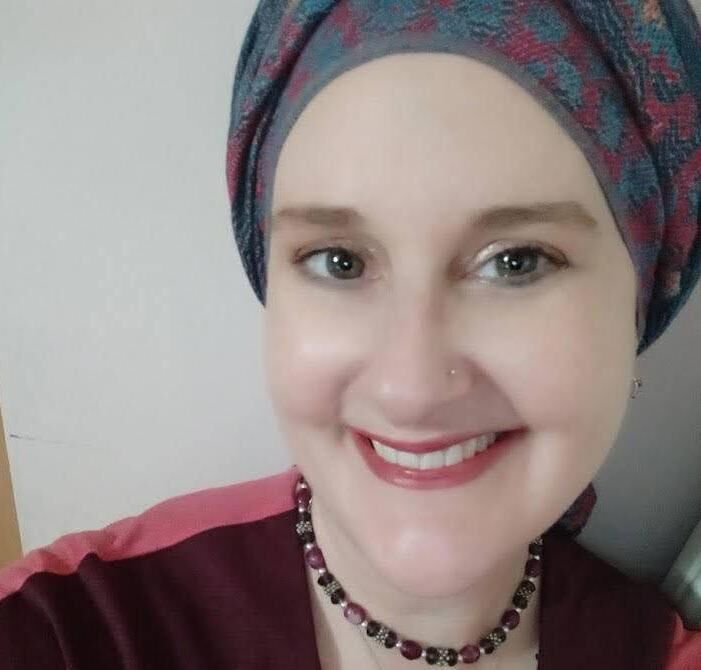
The effect of this is that she has found out about the death of relatives via old neighbours on Facebook. But in spite of her decision, she is still open to being contacted by extended family members.
Hazel now supports people in similar situations through courses and online groups. One of her groups is for daughters of narcissistic mothers, who are trying to navigate a fraught relationship, and considering reducing or ceasing contact entirely.
"The worry of going low contact or no contact is caring what others think. No one walks away from a loving supportive relationship, if they walk away that relationship is not supporting them," says Hazel.
She states that as a society there can be a lot of judgment of a person who has ceased relations with a family member, or an entire family, judging them as the one at fault.
Hazel says:
For someone in a longstanding unsupportive or abusive relationship, and who has become accustomed to the dynamic, she explains the best way to find clarity is to think of yourself "in the third person".
"When I am working with people who have difficult family histories, it's helpful to think of ourselves in the third person. If my friend came to me and said: 'This is how my family is treating me', what would you say? You would probably think: 'How could somebody be so unkind'," she says.
Hazel explains that finding this clarity can be both difficult and liberating for a person who has grown up in the role of the scapegoat or the black sheep of the family, and who is used to assuming blame for every issue and conflict in their home.
"A lot of the work I do is with women who have narcissistic mothers. The dynamics of the relationship of the family where the mother is a narcissist is that you'll have the black sheep, the child that is elevated to God-like status - child who can do no wrong and when we go back into the family environment you fall back into the roles you occupied as children," she says.
And this plays out over Christmas especially.
"You're told: 'You're too sensitive' and you're reduced to tears quite quickly. It makes for a very uncomfortable few days around Christmas," says Hazel.
While she has gone "no contact" with her family, this is not an easy option for many, especially the women she works with. She describes navigating family dynamics as "very difficult", because it is "instinctive" to want to love our family, our parents especially, and be loved in return.
"Some people are just not able to love. It's not that there is something wrong with you.
"We can spend decades of our lives trying to be good enough for our parents, it's instinctive to want the love of their parents, everyone I know in this situation has spent decades trying to get their approval," says Hazel.
Another issue she sees is conflict around boundaries, explaining that in "toxic families you don't have a right to have boundaries".
For anyone in this situation this Christmas, trying to navigate unsupportive or abusive relationships within a family, Hazel has some specific strategies that people can try out.
"You can set things up for yourself to look like you're doing something for the family, but you're doing it for you, you can stay in a hotel and frame it as: 'We won't be under your feet', or 'there will be no washing up'.
"The hardest part is to stick with your guns as the blackmail starts very soon, the wheedling will start. When you change your behaviour it causes a rebellion in the other person as they're only interested in what suits them. That's why having allies is important, be that a partner, a husband, friends, or a group. It's about holding firm until you get support so you don't have to react in the moment," explains Hazel.
Another tool that people find helpful is preparing stock phrases to common or expected put downs. Hazel says you can practise them in the mirror to see how it feels to actually deliver them out loud. For example, if the tradition is to poke fun at something that happened in your childhood, a response would be: "Sure that happened 30 years ago, let's not live in the past".
Another tool is managing your arrival and exit and the length of time you'll spend in the situation.
"Know what your excuse to leave will be like nipping around to the in-laws," says Hazel, "but practise it out loud again so you're not in that flight, fright, freeze or fawn state - freezing is something that happens a lot to traumatised people, or fawning, where you please the other person.
"Practise your sentence in front of the mirror, to see what it feels like in your body to stand up for yourself," says Hazel.





